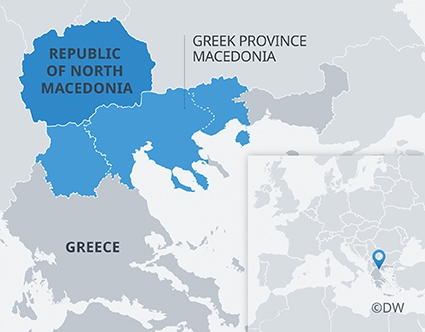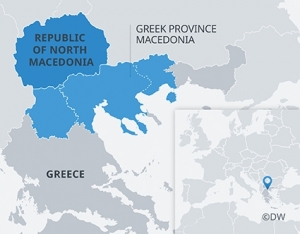Georgia’s North Macedonian Dream
On March 12, the North Atlantic Treaty Organization celebrated the 20th anniversary of the membership of the Czech Republic, Poland and Hungary. Prominent American politician and former Secretary of State Madeleine Albright re-iterated NATO’s open-door policy and assured Georgia and Ukraine that they will become Alliance members once the two countries are ready. Earlier, on June 12, 2018, Greece and the Republic of Macedonia signed the so-called Prespa Agreement according to which the latter will change its name to the Republic of North Macedonia while Greece will finally agree to support its long-standing aspirations of acquiring the NATO Membership Action Plan (MAP). Currently, the Republic of North Macedonia is on its way to joining the military bloc. The latest happenings raised new hopes among the so-called pro-NATO groups in Georgia that their state is next on the list.
Meanwhile, there are serious doubts as to whether the offering of NATO membership to the Republic of North Macedonia is a real precedent for Georgia and Ukraine. These Eastern European states face far more serious challenges attached to global politics, geopolitics and confrontation between the West and the East. At present, it is unlikely the North Macedonian experience can be readily applied.
Names Matter
The name dispute is a long-standing confrontation with old roots. Macedonia is a historical region associated with Greece and Alexander the Great. Nowadays, ancient Macedonia approximately corresponds with the modern Greek region of Macedonia and has little to do with the Republic of North Macedonia. Athens blamed Skopje of trying to assign symbols and figures that were initially perceived as part of Greek culture. Furthermore, there were fears of irredentism. Millions of Greeks identify themselves as Macedonians, and officials in Athens had concerns this might lead to some concepts of so-called United Macedonia threatening the territorial integrity of the state.
So far, the case of the Republic of North Macedonia is unique and inapplicable to Georgia and Ukraine due to its comparative simplicity. The only actor that opposed Macedonia joining NATO was Alliance member Greece. No global politics was involved. Furthermore, there was only one demand that Athens had for Skopje – to change its constitutional name. Generally speaking, the whole dispute surrounded the name of the state and the main challenge was to persuade local elites to negotiate and make a deal using a “win-win” approach. Former confronting sides belonged to so-called small actors that are more vulnerable to external pressure and influence.
The Georgia Case
Whether you perceive NATO as a military bloc, democracy promoter, hybrid organization or something else, it is obvious that modern Ukraine is not ready to join the club. This lack of readiness can be seen on every level of the state build-up. On the opposite side, there is Georgia, which has by all means managed to satisfy NATO requirements; Tbilisi does not need to be ready for Alliance membership because it already is. Thus, we need to abandon this frequently-used-by-various-Western-high officials argument and be clear about the real challenges, recognizing that they are much more complicated than Athens and Skopje.
Perhaps the biggest need is to acknowledge separatism and irredentism as actually-happened facts. Georgia has two separatist regions supported by its northern neighbor, the Russian Federation. Additionally, at least some actors in Tbilisi realize that, besides the Russian factor, there are also significant issues to deal with on the ground, especially when it comes to conflict in the Abkhazia region. An even more complicated situation is seen in Ukraine, where the Crimean Peninsula was integrated by the Kremlin into the state while self-proclaimed Donbas and Luhansk on the east receive military and financial support.
We also need to consider Moscow and its geopolitical agenda. Unlike Greece and Macedonia, Russia is a “great power”. Of course, it is no match for the USSR, US and/or China, but it still possesses enough accumulated military power, backed by a vast territory and natural resources, to promote national interests and counter any other global actor. The Kremlin perceives both Georgia and Ukraine as zones of influence, “living space” and “security belt” and so the integration of these two states into NATO is a direct threat to its fundamental interests. And there is no point presenting the Alliance as a Russia-friendly military bloc: the Kremlin will perceive it as a threat while NATO prospers and Russia is not a member.
Unfortunately for Tbilisi and Kiev, their separatist regions have become battlefields between the united West and the East, meaning Russia, China and all those actors that aspire to shake the existing global political order, with the US on top. This fact makes it even more complicated to solve disputes on the ground due to their transformation from local (especially in Georgia’s case) to global: global actors are involved, and their goals go far beyond simple conflict resolution.
The reasons outlined above are real challenges that Georgia and Ukraine experience on their way to NATO membership. And while on the ground, Alliance representatives may speak about an open-door policy, but factually these “doors” will be opened only verbally.
By and large, the so-called Macedonian precedent has nothing to do with NATO aspirations for Tbilisi and Kiev. The name dispute between Greece and the Republic of Macedonia was comparatively simple, while Georgia and Ukraine face extremely serious challenges, including separatism, irredentism, the Kremlin’s geopolitical agenda and, of course, war for the future of global politics.
Thus, Georgia will need to wait a while on the list. But it is highly important for these two countries to continue state building, whether with MAP or not; officials must finally understand and accept that the ongoing build-up is not for NATO but for the prosperity of the people on the ground.
By Archil Sikharulidze, SIKHA Foundation












